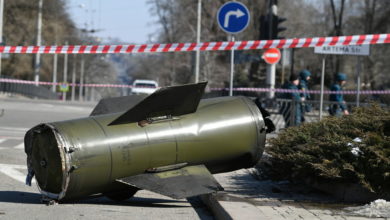Emmanuel Macron’s Uncertain Future After the French Election

These past weeks have seen Emmanuel Macron go through a lot. In April he scored a resounding 17-point victory over far-right opposition veteran Marine Le Pen to secure a second five-year term as France’s President. Then, on June 19, his political alliance suffered a historic defeat in parliamentary elections. For a majority in National Assembly, his bloc would need 289 seats. Ensemble! alliance didn’t come close.
It’s the first time since 1988 that France’s elections haven’t provided the winning party a majority of seats. Even in that case, François Mitterrand’s Socialists came close enough that his government could cobble together support for key pieces of legislation from a few opposition lawmakers on a case-by-case basis. This will prove more difficult for Macron as he has to convince more lawmakers. Never mind that detailed negotiation and compromise have never been strong suits for a President who hasn’t had to do much horse trading during his political life.
In short, Macron was elected to lead, but voters haven’t given him enough deputies to follow. France enters an era of political uncertainty.
It’s not just that Macron will face intense opposition within the Assembly from both left and right. The opposition blocs could even fall apart. The largest opposition alliance is composed of odd political bedfellows from the left who were brought together during the campaign by political firebrand Jean-Luc Mélenchon, who will want to keep this loose grouping of Greens, Socialists, Communists, and others—which won 131 seats in June—as part of a stable voting bloc. These parties’ interests are too different for this.
Macron is expected to look for limited backing from the conservative Les Republicains (LR), which will hold 64 seats in the Assembly. The LR is not without its faults. There are enough centrists in that party who share Macron’s views on lowering taxes and state spending to provide backing for his reform agenda. But a sizable share of LR deputies now lean further toward the nationalist right, and many in this faction are eager to defy Macron’s pro-E.U., pro-business reform ideas. The LR’s acting leader, Christian Jacob, has ruled out any plan to join with Ensemble! He has not yet formed a formal coalition. Instead, he promises “constructive opposition.” The LR will choose a new leader this fall, and to avoid losing more members and voters to Le Pen’s far-right, E.U.-hostile National Rally, there’s a good chance the new leader will steer the party further to the right. France’s government won’t be completely paralyzed. People will continue to support spending new money to aid voters in economic difficulties. They’ll also extend state subsidies to lower fuel prices and keep electricity costs under control. And though the hard left and the far right will voice hostility toward sanctions on Russia and military support for Ukraine, there are enough deputies among centrists and Greens to continue support for Macron’s plans.
However, the long-term reform plan to increase France’s economic competitiveness will almost be impossible to implement. Macron will only be able to hope that the bitter political fighting and a few months of infighting with French voters will end and that next spring he is able to dissolve the Assembly and schedule new elections. But for now, it’s hard to imagine what might change in the months ahead to incline more voters toward strengthening Macron’s hand.
Read More From Time





